'Fake news city' is now pumping out odd Facebook videos
- Published
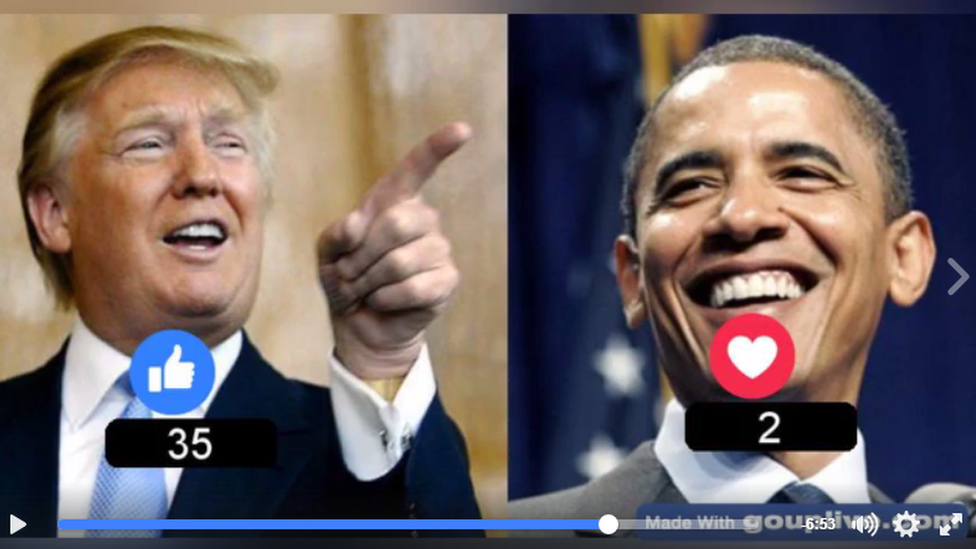
Fake news writers are producing strange, static videos that appear designed to boost pro-Donald Trump Facebook groups.
It was billed as the city of fake news. After the election of Donald Trump, journalists descended on Veles in Macedonia, which hosted a disproportionate number of fake news websites.
Now it appears that people in Veles have developed a new tactic to try to make their Facebook posts go viral and thus raise the popularity of false stories.
Several are using Facebook's live broadcasting tool to produce long, silent clips. The posts typically ask questions about President Trump or former President Obama and ask users to click "like", "angry", "haha" or another Facebook reaction button in order to register their preferences.
For instance, one of these video polls asked: "Who is the best president in our country America?". The video itself showed still pictures of Trump, Obama and former President George W Bush, along with a running tally of the "votes".
BBC Trending found that video, and others made by people from Veles, in pro-Donald Trump Facebook groups.
Here's a sample of what the videos look like:
Odd Facebook videos 'promote fake news'
The key to understanding what's going on here is the mechanism by which the posts solicit reactions. Making users click "like" or another reaction button to vote in the "poll" affects the Facebook algorithm and would tend to increase the chances that the video is seen by other people.
But the producers of the videos may be slightly behind trend. In December, Facebook responded to users who complained that looping or static videos weren't very interesting.
"Given this feedback, we're now taking steps to reduce the visibility of Live streams that consist entirely of graphics with voting," the company said, external. "If you post a Live video with graphics-only polls, it may not show up as high in people's News Feeds."

More from BBC Trending
Visit the Trending Facebook page, external

The poll videos look like they are gauging opinion, although given that they are being posted in pro-Trump Facebook groups, the outcomes would seem to be foregone conclusions. At the same time, most of the time the content of the videos isn't faked or misrepresentative, like it has been in some more notorious cases. One Facebook Live video posted in October 2016, for instance, pretended to be a broadcast from the International Space Station.
But by driving traffic to the posts in pro-Trump groups, the videos might also aid the spread of fake news stories. In fact, the videos often sit side-by-side with stories that are false or have deeply misleading headlines. For instance, this story, a hoax about university students threatening to cut off their genitals if Trump carries out his plans to build the US-Mexico boarder wall, was debunked by the urban legends website Snopes, external and others, external. Clicking on the link to the story leads not to the text of the news story, but rather to a page of advertising:
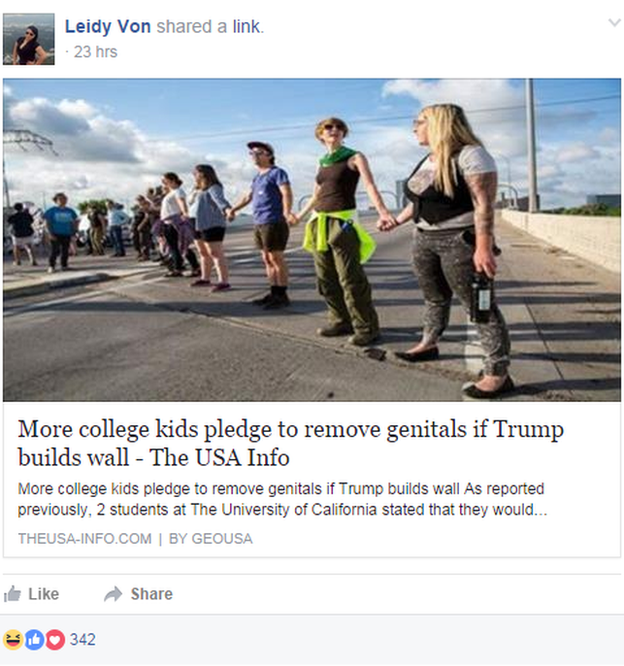
In some cases, the video polls have a false premise at their heart. One example:
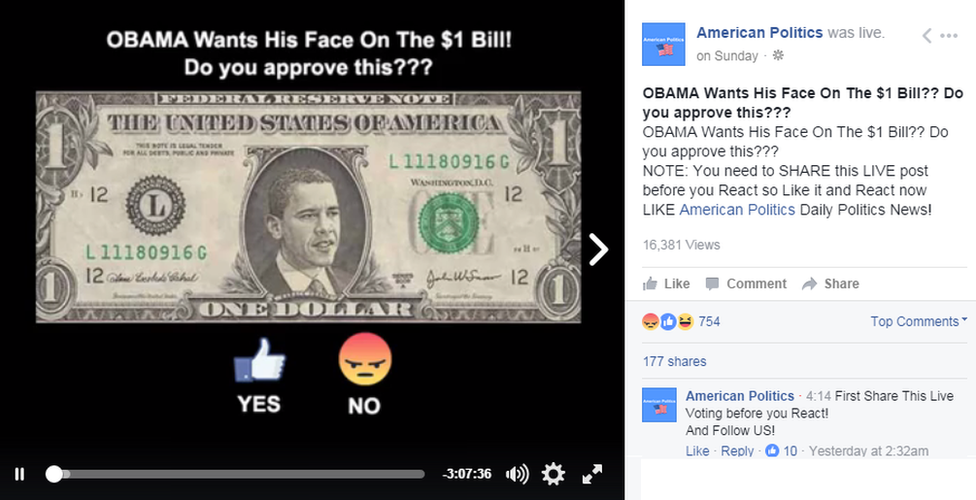
Obama has never asked to be on the $1 note, external (and anyway, even if he wanted to, US Treasury rules prohibit living people from appearing on currency, external).
The post contains another falsehood as well: "You need to SHARE this LIVE post before you React." Although you don't have to share any Facebook post before you react to it, claiming that you do might trick some people into doing both - thus giving the video a further boost according to the network's algorithm.
Several of the people sharing the polls declare Veles connections in their Facebook profiles.
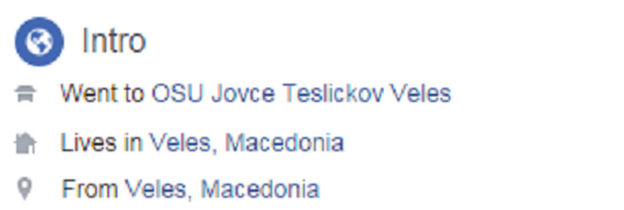
A report by Buzzfeed, the news outlet that initially identified the Veles cluster, external, said that before the US election, the most popular false news stories were shared on Facebook more times, external than the most popular stories from mainstream media outlets.
Facebook and other social networks have since started to put in place a number of measures to combat the spread of false stories, and there have also been a host of independent initiatives to try to tackle the problem.
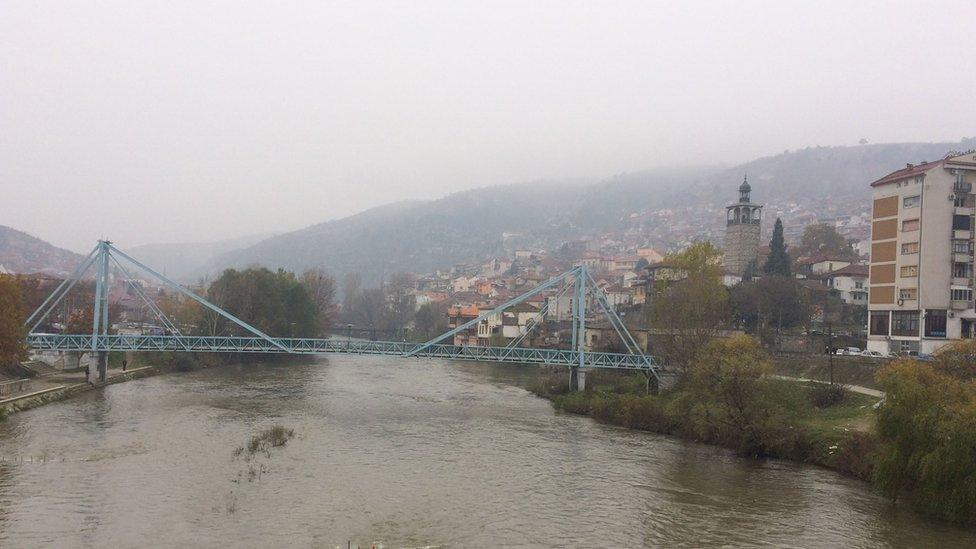
Veles gained notoriety as a centre for false news production
As for the fake news writers of Veles, it appears they're motivated more by profit than politics.
"Teenagers in our city don't care how Americans vote," one fake news writer in the city told the BBC in December. "They are only satisfied that they make money and can buy expensive clothes and drinks!"
BBC Trending tried to contact some of the people in Veles sharing the videos, but none responded.
The "poll" videos also aren't limited to Macedonians or pro-Trump groups. They appear in non-political contexts, and Trending has also seen them in groups supporting Philippines President Rodrigo Duterte, a populist leader whose online machine was a key factor in his election victory in 2016.
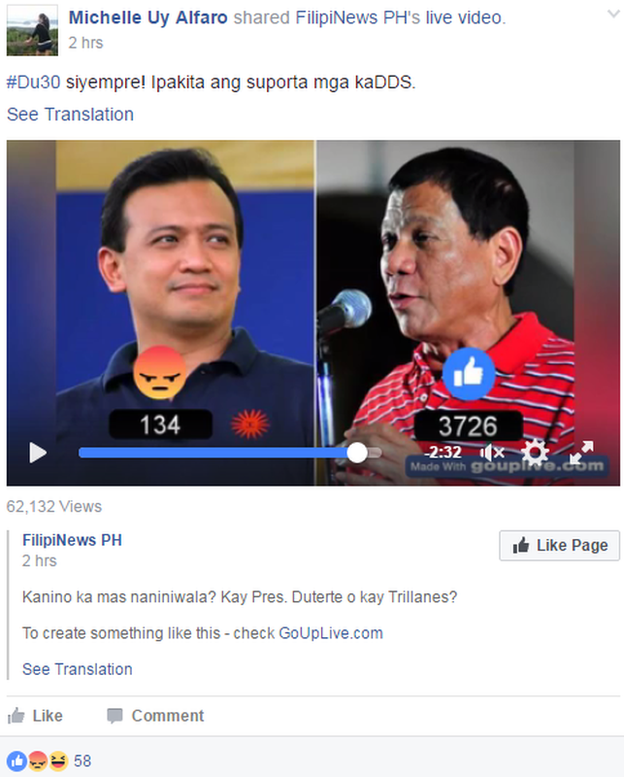
This online poll asks if respondents have more trust in Duterte or a rival Filipino politician, Antonio Trillanes. It was posted in a pro-Duterte group
Blog by Mike Wendling, external
Additional reporting by Jonathan Griffin
Next story: How the Oscars became high season for film piracy
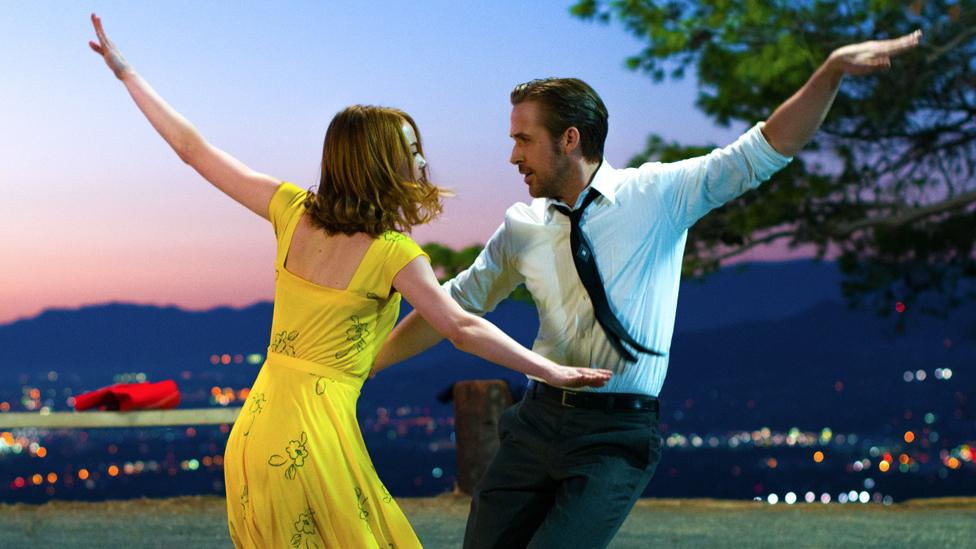
Ahead of the 89th Academy Awards, it's peak time for those seeking to rip off Hollywood's work - with one anonymous hacking outfit largely to blame.READ MORE
You can follow BBC Trending on Twitter @BBCtrending, external, and find us on Facebook, external. All our stories are at bbc.com/trending.